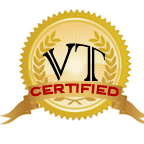
Reading for Pleasure is optimal for Comprehension as well
Being able to comprehend what one reads is an awesome skill. This technique is simple to do but it works. The trick to it is that it is very counter-intuitive because it seems too easy.
Have you ever noticed that you remember lots of little details on things?
Let’s say you are a sports fan. You can remember RBI’s and touchdown records like a human computer.
Let’s say you are a video or computer gamer. You remember statistics on how characters and items work. You know exactly what realm to go adventuring in for the best EXP and coolest quests.
Let’s say you are an avid comic book reader. You know about every superhero his or her special abilities and their back-stories.
The truth is, you actually have an EXCELLENT memory. It’s just that your memory appears to be selective.
Here’s how it works.
When you get information, your body and mind are doing all sorts of things. There are emotions pumping chemicals through your circulatory and endocrine system. Neurons are firing. And also you may be interacting with friends or family or even co-workers and so there can be social things happening as well.
As you get information, how you get that information directly affects your comprehension. If you are feeling pleasure or excitement, perhaps even a burst of adrenaline…then the chances for comprehension go way up.
Think about those sports stats, if you see your favorite baseball player hit a foul-ball and you happen to catch the ball in your hand…do you think you’ll remember that game or the player or even the run breakdown per inning? Of course you will. This is because you are both consciously and subconsciously attached to the information.
So let’s apply this to reading.
Many people read books and have completely different reading styles. My father likes to skim books. He does this especially for historical fiction. He reads them and enjoys them. But his comprehension is hit-or-miss. Sometimes he even borrows the same books over again because he forgot about them entirely. This is happening because of the motivation for reading the book. For his case, he reads the book as a way to relax after a long day of work.
But if you’re reading this, you want to improve your comprehension for all things that you read. This includes books, online information, blogs, manuals, non-fiction books, histories…everything.
The key is to read everything…I mean EVERYTHING, as if you are reading it for maximum pleasure. This may seem really strange. How can reading a book for school be maximum pleasure?
The most important thing to think about is not the book you’re reading, but the state your mind is in when you read it. You need to figure out your favorite places to read. Do you like reading with music or without? Do you like being alone when you read? Are coffee shops fun places to get reading done for you, or is home better?
When you think about the above questions, don’t imagine that you’re reading something for work or school. Imagine you’re reading something that is a piece of information that you really WANT to read. Something that will bring either happiness or excitement in your life.
Let’s say you don’t read all too often. But you’re a businessman or businesswoman, and you just got some interesting statistics for a business opportunity. This could be extremely profitable for you and it could make your retirement run much more smoothly if you play your cards right. Visualize how you’d read every word and savor the information so you can talk to the potential investor or client in detail about the opportunity. The more you comprehend, the smarter and more capable you’ll appear to both your client and yourself. But since you’re sincerely interested in this information, you savor each line and diagram and are truly enjoying yourself.
Would you read a document like that while trying to drive cross-country with your angry kids who just got from soccer practice? Probably not. It’s too important.
You’d probably take that document and go to your personal study and relax. Maybe put on some music or bring some tea or chill water with you. Maybe you’d bring the document to a coffee shop and order your favorite drink…so what if it’s expensive and fattening…this document is worth it. “I can always go to the gym later…this is important.”
As you read this document, you’re not just reading letters on a page. Your whole body and mind is engaging the information. Consciously, your eyes are reading the words and your mind may be hearing them internally. But subconsciously, the entire setting, your mood, and the vibes of the whole experience is sticking to you.
What people don’t realize, is that the subconscious side of comprehension is just as important as actually reading the words.
Here’s where things start to get even more strange. You don’t even need to understand everything you read.
Actually, it can be better for your comprehension if you consciously are completely dumbfounded by what you’re reading. Subconsciously, what is happening is that your mind puts the information in a little box.
Imagine the box as an, “I don’t quite get this info yet” labeled box. Your subconscious mind LOVES this stuff. Everyday life is completely mundane and even the most complicated things these days are lined out to such scrutiny that there’s little mystery anymore. But it isn’t this way for your subconscious. The part of your mind that doesn’t get to directly participate in the day gets a tremendous amount of entertainment by NOT knowing things. And the more it doesn’t know something, the more it will tinker with those ideas during the day and during sleep.
So here’s the most important part of this Subconscious Reading Comprehension technique. When you get to something in an article or book that you don’t understand. Don’t trip up on it. Don’t even mark it. Just read it a couple time over. And then when you realize that you don’t understand the information on that page…say to yourself, “Hmm! That’s interesting. I haven’t the foggiest about that.” (you can add whatever dialect or accent you choose here)
Then after you have correctly identified something that you are 100% sure that you do not know, then continue reading. Your subconscious mind will store everything and will probably thank you for the extra puzzles to play with.
What will happen is that when you re-visit the information at a later time, you will recall things that you didn’t think you actually understood. Books and articles from other sources will help to fill in the gaps. Then when you pick that book up again, it will not seem remotely as complicated or arcane at all.
Highlighters, pens, notes, are all great…but the best knowledge is the one that is comprehended without external tools. You shouldn’t need a mnemonic for memorizing answers for a test. You should have mastery of the subject matter that flows comfortably from the mind to the pen.
The truth is, scientists have good ideas about memory. They know what parts of the brain control memories and how damage to those centers can affect things. But we actually have just started to scratch the surface of how memory works. Any reputable scientist on this subject matter would say human memory requires much more research before we master the subject in a similar way to how we’ve mastered Newtonian Physics.
I hope you enjoyed this article and it was fun to read for you.
-Tyler



